We spoke to the people who make film trailers
Many viewers assume trailers are made in-house by the film's director, editors or studio, but separate agencies are in fact competing to produce them
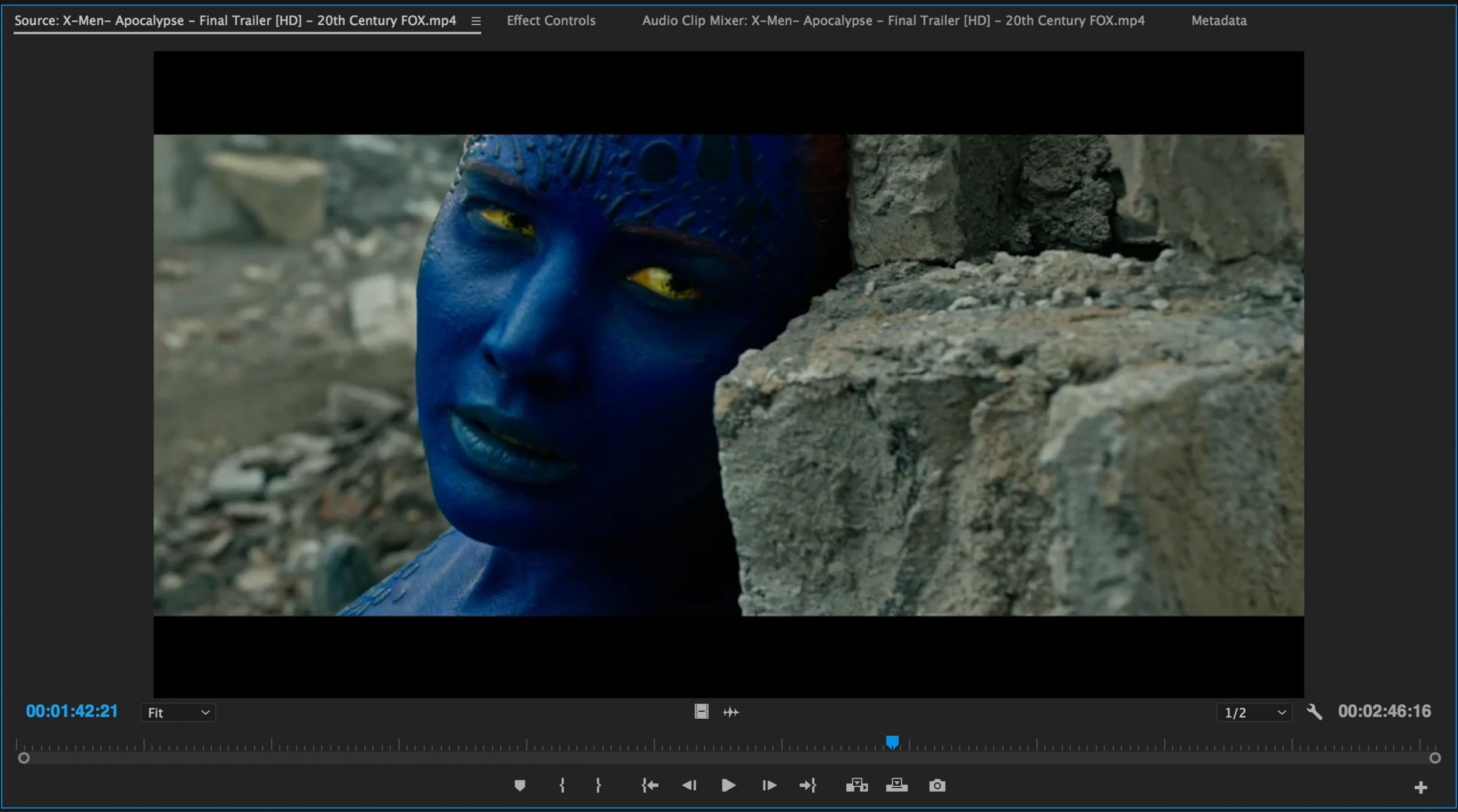
Watch this no-nonsense 1988 trailer for Die Hard and maybe this spoilerific 1980 one for The Empire Strikes Back and you’ll realise just how much film trailers and film promotion as a whole has changed.
While trailers were once a brief thrill limited to the cinema and all but forgotten about once the main feature rolled, they’re now major events – obsessed over, dissected and reworked by fans.
They’re such a big deal that they require outsourcing, and undergo a process that takes almost as long as the production of the film itself.
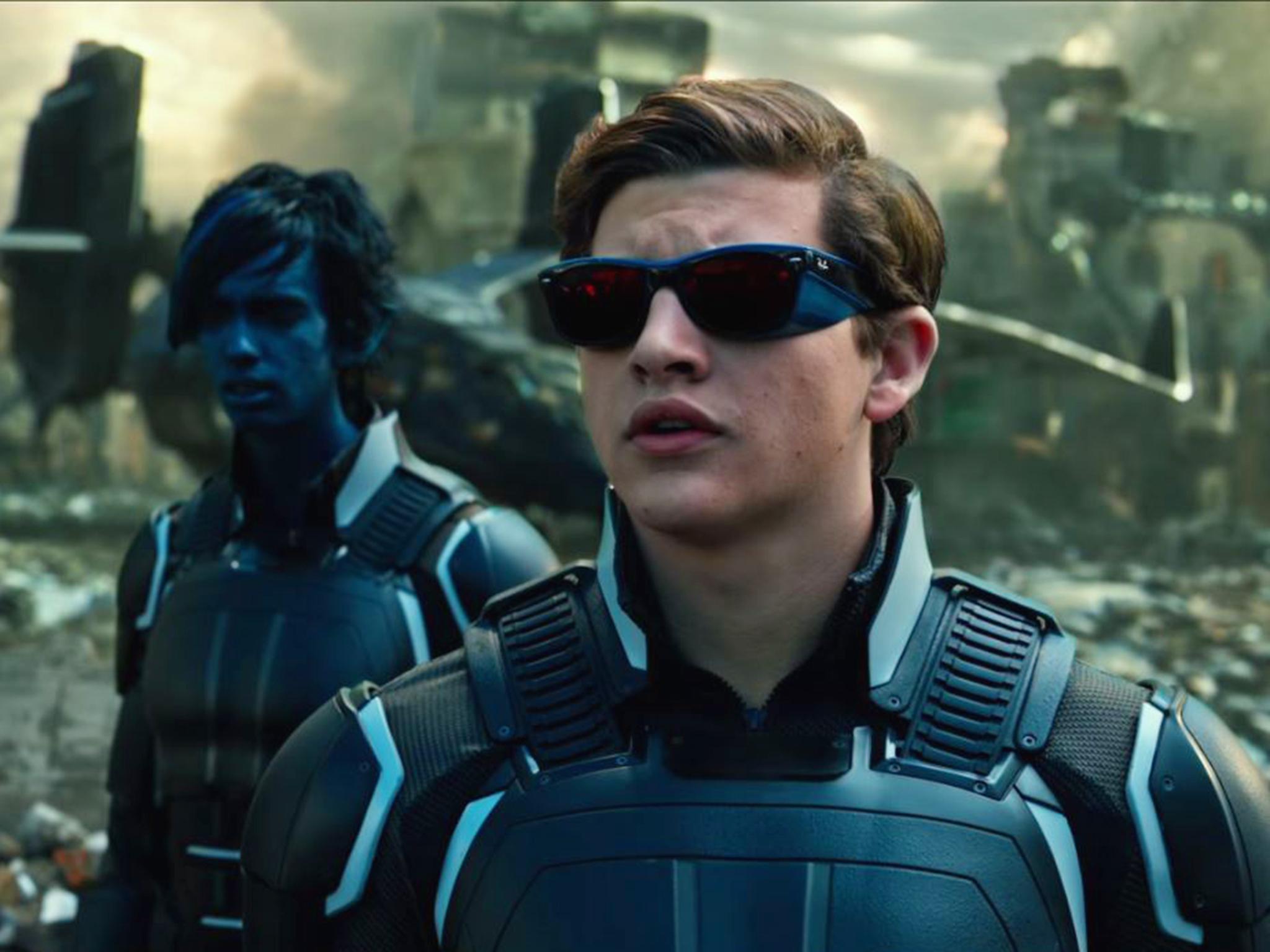
David Stern (Owner) and Michael Trice (Creative Director) work at Create, a Golden Trailer award-winning agency responsible for some of the biggest teasers, trailers and TV spots going (non-exhaustive list: X-Men Apocalypse, American Crime Story: The People v OJ Simpson, The Amazing Spider-Man 2, Beasts of No Nation, Casino Royale, Iron Man, Iron Man 2). We caught up with them.
I think lot of people out there think trailers are just made by the directors or editors of the film and don’t realise there are agencies involved. Obviously there’s such a crazy amount of scrutiny on trailers now that there wasn’t before the internet and social media, do you feel the pressure?
The business has become a business of delivering one of the most beloved pieces of pop culture material out there so you’re absolutely spot on when you say there’s so much more scrutiny. There’s two parts to it: I think people don’t know separate agencies do the work and they don’t realise the amount of work that goes into making trailers.
So do you commit to a number of trailers and teasers for a specific film?
It’s competitive in the sense that you’re awarded the chance to cut the trailer but there are multiple agencies competing to finish the same trailer. It’s not like traditional advertising where you pitch and based on the pitch you’re awarded the job; we’re competitively cutting and creating right until the bitter end.
The studio then looks at multiple versions of the trailers from multiple companies each giving their own point of view, and then it has the advantage of picking what it likes from different trailers and testing different approaches in the marketplace as to what seems to work best for consumers.
How much does the director generally get involved, does it vary from project to project and genre?
A higher calibre director, or one who wants to very much get their hands on it, will get really involved. It’s definitely a stage in our process; it either comes earlier on or after a studio has a trailer that they’re happy with, then they show it to the director and there’s a good chance they’ll become involved, as they should, because it’s such an important piece of the movie going out. The director wants to get involved, it’s another creative outlet for them. There are times when we intimately work with a director from the beginning; the Valerian teaser we just did, we’ve been working on that with [director] Luc Besson from the beginning.

Watch Apple TV+ free for 7 day
New subscribers only. £9.99/mo. after free trial. Plan auto-renews until cancelled.
ADVERTISEMENT. If you sign up to this service we will earn commission. This revenue helps to fund journalism across The Independent.

Watch Apple TV+ free for 7 day
New subscribers only. £9.99/mo. after free trial. Plan auto-renews until cancelled.
ADVERTISEMENT. If you sign up to this service we will earn commission. This revenue helps to fund journalism across The Independent.
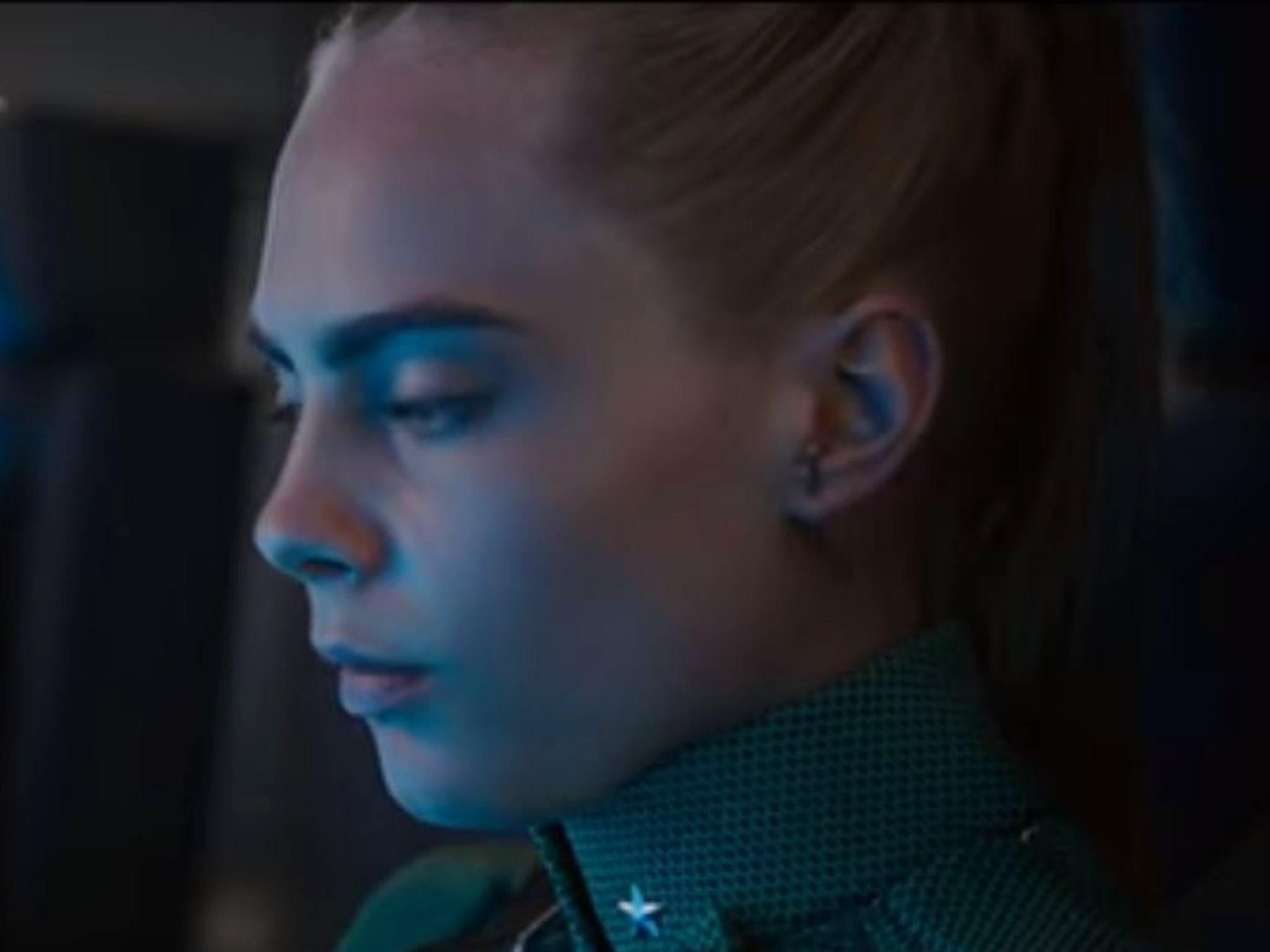
I imagine I’d feel so protective over the trailer for a movie I was making and I’m sure most directors must do, are there still some who want to do it all themselves or do pretty much all films collaborate with people like yourselves now when it comes to trailers?
Most directors understand the need to go to specialists for different parts of the process and they look at us as one of those specialists. Most of them know they can’t do it all themselves and they want the help of people like us.
So you come up with a trailer, submit a draft cut to a studio, how many back and forths and re-edits generally follow?
It depends, we worked on the Angry Birds campaign for three years and that’s the entire campaign: teaser, trailers, TV spots. But then there’s other campaigns where we are called in at the last minute and it can be a week. Typically I’d say it’s three or four months.
And with the involvement of the filmmaker there’s different stages too; they might first get involved in the overall format of the trailer and the way you’re positioning the movie in it, and that could be the first set of conversations, and then, as the process gets closer to a specific trailer being deemed as working, they might also do things like give us a different take [from filming] of something that they like better or give us sound effects that they’re using in the movie that weren’t in the cut that we had, so that process goes back and forth a lot.
Is footage now shot specifically with trailers in mind, i.e. they know it probably won’t go in the film but they want to shoot some powerful visuals just for use in announcement trailers etc?
At times, production will shoot specific footage for inclusion in announcement or teaser trailers. Filmmakers need to be brought on board early in these cases and sometimes can be the originator of these concepts.
But in terms of ‘things from the trailer that don’t make it into the movie’ discussions – and I don’t think a lot of people realise this – we’re working with filmmakers form the beginning and they don’t even know what’s going to go in the final feature themselves because the cut is this living, breathing, changing thing. The trailer comes out before the final cut of the movie’s done sometimes so there may be something we have in our cut that we and the filmmaker think is going to be in the final cut of the film but ultimately isn’t.
Do you ever find yourself short on footage and have to make do with what you’ve got?
[Laughs] Yeah, all the time. We are given the material and we have to just work with it. Sometimes we might write dialogue and have that recorded by the actual stars of the movie because we need to say something more succinctly than it is currently being expressed in the movie.
There are even times when we’ve been asked by a studio to cut a trailer using footage from other films to help them get the film they’re working on green-lit. Sometimes we actually cut things with nothing from the movie we’re trying to cut a trailer for. That’s what we call a sizzle reel [which is obviously never released to the public] – a filmmaker or studio has a concept for a movie and in order to get momentum for it, they ask us to cut something that represents what the movie will someday be. That’s purely a developmental piece for the studio process used to get people excited about a project.
The biggest thing hanging over trailer discussion these days is spoilers. It’s interesting, I was watching the [aforementioned] trailer for The Empire Strikes Back the other day and it was absolutely riddled with spoilers, but obviously because it wasn’t being bounced around the internet back then it didn’t matter so much, whereas now it seems you’ve got to be really careful.
True, and there’s all sorts of issues - you don’t want people to feel like they’ve seen the entire movie in trailers. Now there’s such a hunger to get material into the marketplace and to keep feeding it with material but you have to be careful not to put the whole movie out there. We’re only supposed to be giving a sample of the movie that makes people want more, that’s our job.
Most movies have two to three trailers that you’ll see in theatres – the first one being more announcement-orientated – especially if it’s an event kind of movie where you want to get some buzz in the marketplace. The second trailer gives a little bit more of the full meal where you’re telling more of the story and immersing people and then very often now there’s a final trailer in the months just prior to opening the movie that has all of the latest effects; it’s more like a piece just to get excitement up and reinvigorate the marketplace for interest.
Do you find the number trailers studios want to put is going up year on year? It feels like it’s now the norm to see a fourth or fifth trailer…second TV spot… international trailer…they’re endless.
Before the advent of digital it was hard to reach the kind of audience you can reach now with the trailer, it’s a great marketing tool. With the ability to get it instantly across the globe and reach millions of viewers – I think that’s why you see that uptake in the amount of different trailers and also because international’s becoming a much bigger and more important market. It used to be no-one in the US would see the international trailer and vice versa. People in the UK might not see the US trailer but now it just happens, so that’s part of the dialogue that people also talk about, and we get that.
Right, people purposefully seek them out. They want to see the way a film’s being marketed to a different audience and they want to try and find plot elements that might not have been included in the ‘domestic’ trailer.
There’s a certain portion of the viewers that are really involved and they’re watching your material, commenting on your material and are hungry for all the different pieces that are out there, and those are important movie-goers because those are likely to be the same people who are going to show up on opening weekend, and the same people who are going to get others excited to go see the film.
Where do you see the future of trailers going? What do you think the process of teasing a film will look like in five years time?
It’s a good question. Often you get worried about movie-going, but the truth of the matter is movie-going as an exercise seems to continue to be an important part of culture; people like to go to the movies. And trailers will always be the best way to feel a movie.
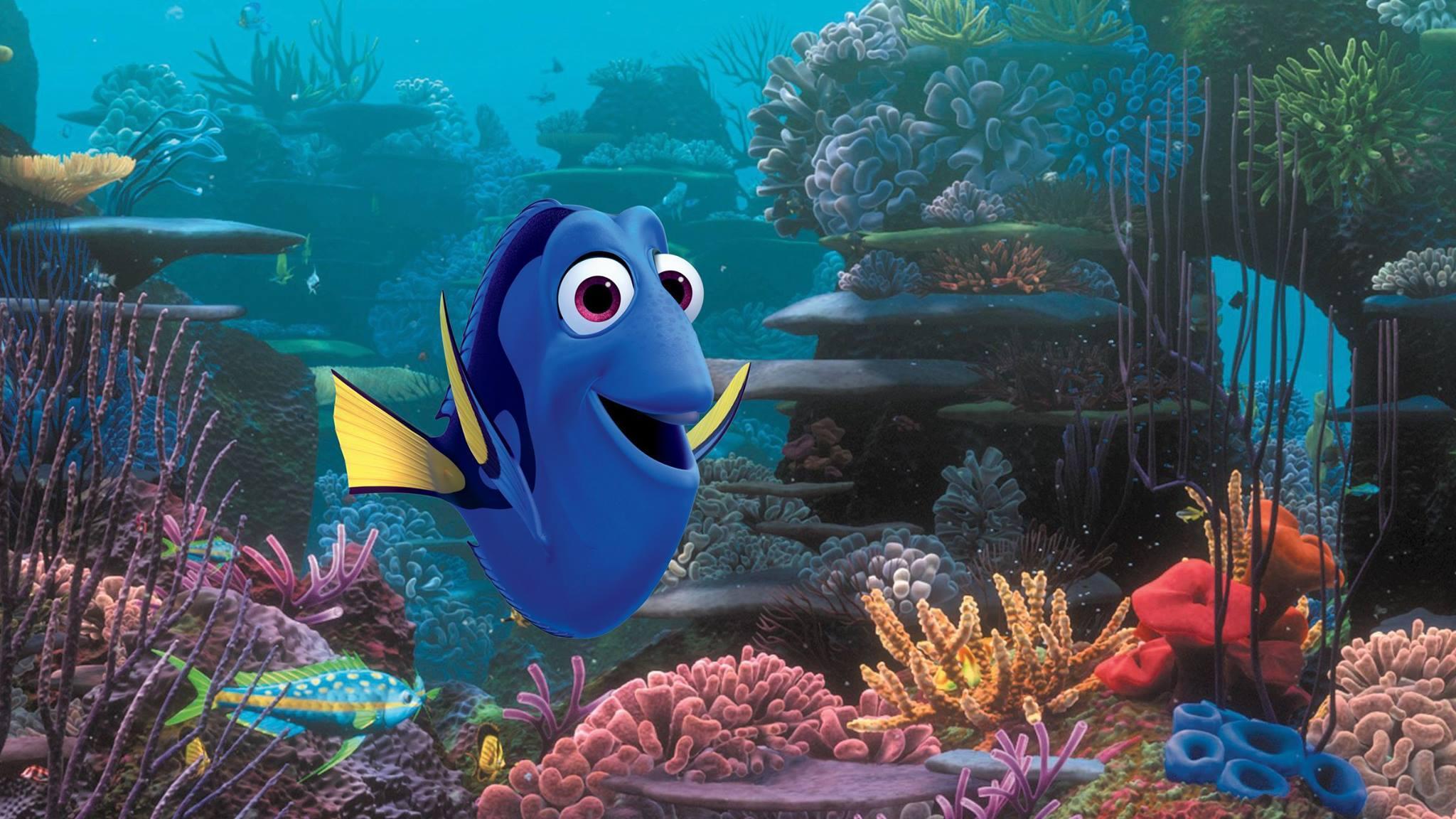
Interestingly trailers used to be seen only inside theatres, but now they’re mostly seen on the internet. It used to be you went into the theatre and didn’t know what you were about to see, and that was part of the storytelling – the trailer would start and the story would be exposed to you. Now people go looking for the trailer and know the name of it so that’s a different experience. So, for instance, we used to do trailers which were called misdirects, where you thought it was going to be one kind of a movie then it would switch to another, and we still do those but we find they’re much more effective in the movie theatre than on the internet when you know what you’re going to see already.
‘Misdirects’ brings to mind the trailer for Scorsese’s Silence, it was all fast pace and intense strings but the actual film is a very slow and brutal experience.
Right. So with the future what we’re seeing right now is more international trailers – the American studios paying more and more attention to the international market and making sure they’re delivering material that works best in different countries. So we might work on a different trailer for Japan and a different trailer for the UK depending on the kind of movie and the selling position; that’s happening a lot and I think it will continue.
I think we did six trailers for Finding Dory, for different markets around the world. Another thing that seems to be a trend we’re enjoying and taking advantage of, it’s not really the trailer world, but it’s delivering material on the internet based on the vehicle – creating specific material for Instagram or Facebook; so beyond the trailer here are other goodies that we can deliver to the audience. If you have a movie that stars, let’s say, two big actors like Kevin Hart and The Rock, in their case we created material for each of them to use on each of their own Twitter and Instagram pages [for Central Intelligence], specifically positioning each of them against one another so they were playing with material that went back and forth. In each of those cases they have millions of followers so you’re getting their specific fanbases material that is created just for them. So that’s where the industry seems to be going in a world where we need to pay more attention to digital distribution and create material that really works well in different digital categories.
I imagine VR is now part of the discussion too, giving people a taste of a film by putting people in its environment?
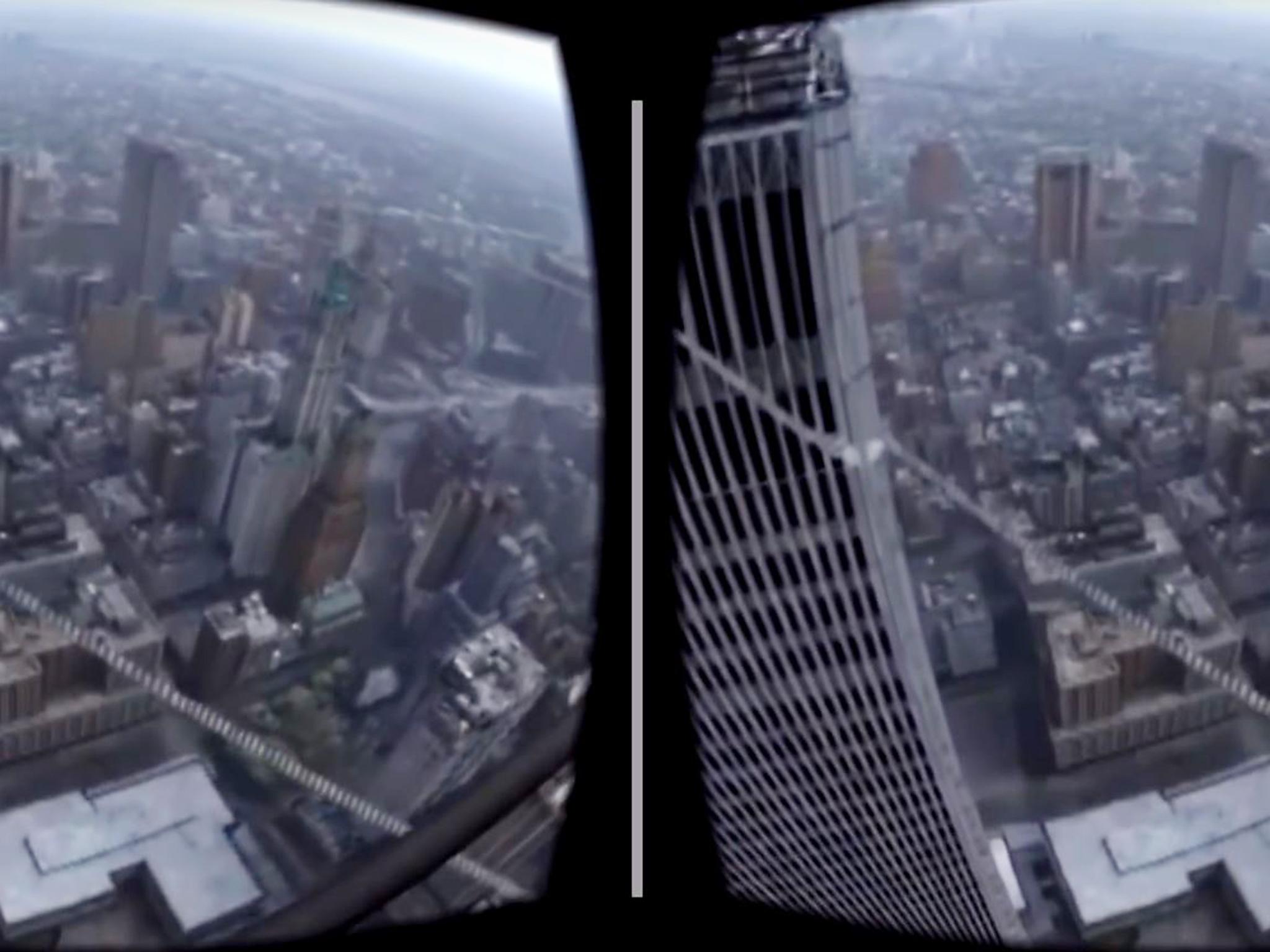
Yeah, we’ve moved deeply into VR. It’s sort of like the super trailer where you get to place yourself into a character’s position. We created an experience for The Walk where you got to actually step out on the tightrope between the World Trade Centre towers, it was pretty intense – VR is really becoming a product line in its own right.
Join our commenting forum
Join thought-provoking conversations, follow other Independent readers and see their replies
Comments
Bookmark popover
Removed from bookmarks